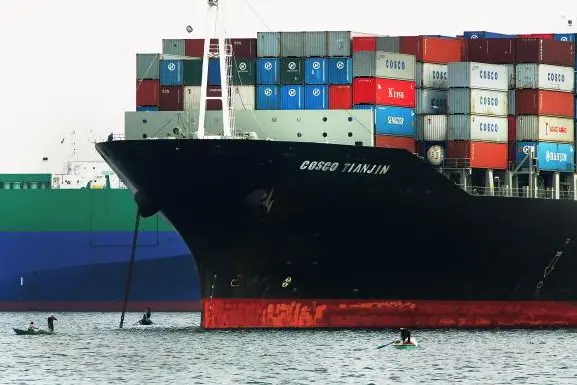PHOTO
Doha, Qatar: The Middle East and North Africa (MENA) region has been partially shielded from the latest wave of global tariffs introduced by US President Donald Trump. However, the region is not immune to the broader economic implications, according to Carla Slim, MENAP Economist at Standard Chartered.
Slim made the remarks at Standard Chartered’s Investment Dialogue in Doha yesterday, where senior executives and financial experts convened to discuss the evolving macroeconomic landscape, the future of treasury, and emerging investment frontiers.
The event opened with a timely discussion on the recently announced US tariffs, including the ongoing US–China trade tensions and their potential ripple effects across the MENA region. Experts noted that the tariffs – set at a baseline of 10% for the GCC, Egypt, and broader MENA – reflect existing US trade surpluses with these economies.
A 90-day pause announced on April 9 means that elevated tariffs on non-retaliatory countries will revert to the 10% baseline.
While steel and aluminium tariffs remain in effect, they are expected to have a limited impact, primarily affecting Bahrain and the UAE’s
exports.
Carla Slim, MENAP Economist at Standard Chartered, said: “The MENA region has been partially shielded from the latest wave of global tariffs, but not immune. While direct trade exposure to the US is limited, the indirect effects – from oil prices to FX risks – are far more consequential. Yet, this environment presents an opportunity for trade rerouting and deeper South–South integration, which could ultimately benefit the GCC’s position as a global trade corridor.”
The dialogue also explored how MENA markets can capitalise on fast-growing trade links, including through initiatives such as the UAE’s Comprehensive Economic Partnership Agreements (CEPAs), which were highlighted as key to enhancing resilience and regional integration.
Opening and closing the session in Doha, Muhannad Mukahall, CEO and Head of Coverage, Standard Chartered Qatar, said: “Qatar continues to serve as a strategic financial hub for the region. As the first bank to establish operations in the country, we remain committed to supporting its economic diversification journey. Events like this bring together global expertise and local insight, ensuring that Qatar stays at the forefront of regional finance. By convening key voices and experts here in Doha, we look to drive critical conversations that connect global insights with local ambition and reinforce our role as a bridge between East and West.”
The Investment Dialogue reaffirmed Standard Chartered’s commitment to supporting Qatar National Vision 2030.
© Dar Al Sharq Press, Printing and Distribution. All Rights Reserved. Provided by SyndiGate Media Inc. (Syndigate.info).
The Peninsula Newspaper





















